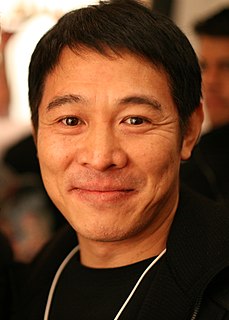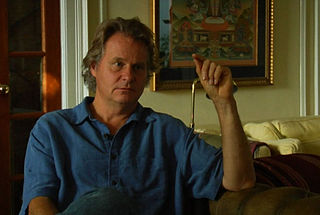Top 1200 Buddhism And Christianity Quotes & Sayings - Page 7
Explore popular Buddhism And Christianity quotes.
Last updated on October 16, 2024.
If you want to judge how well a person understands Christianity, find out how much he makes of the thought of being God's child, and having God as his Father. If this is not the thought that prompts and controls his worship and prayers and his whole outlook on life, it means that he does not understand Christianity very well at all.
There is one notable thing about our Christianity: bad, bloody, merciless, money-grabbing, and predatory. The invention of hell measured by our Christianity of today, bad as it is, hypocritical as it is, empty and hollow as it is, neither the deity nor his son is a Christian, nor qualified for that moderately high place. Ours is a terrible religion. The fleets of the world could swim in spacious comfort in the innocent blood it has spilled.
Think of Jonathan Edwards who thundered the terrors of God and what Hell was like until men grasped their seats and hung on to them, fearing they were falling into Hell itself. Men were moved by fear to escape damnation. That was believed to be Christianity. Why any coward wanted to keep out of Hell. He might not have had one idea in his soul of what was the real true earmark of Christianity.
True practical Christianity (never let it be forgotten) consists in devoting the heart and life to God; in being supremely and habitually governed by a desire to know, and a disposition to fulfill his will, and in endeavoring under the influence of these motives to 'live to his glory.' Where these essential requisites are wanting, however amiable the character may be, however creditable and respectable among men, yet, as it possesses not the grand distinguishing essence, it must not be complimented with the name of Christianity.
I am devoting my lecture in this seminar to a discussion of the possibility that we are now entering a Jewish century, a time when the spirit of the community, the non-ideological blend of the emotional and rational and the resistance to categories and forms will emerge through the forces of anti-nationalism to provide us with a new kind of society. I call this process the Judaization of Christianity because Christianity will be the vehicle through which this society becomes Jewish.
I've had lots of discussions with my Muslim brothers and sisters who have said to me, "Christianity is a white man's religion" But I'm like, "how is that possible when Christianity went into Africa before it ever went into central Europe?" Even the first people to become a Christian nation were not Romans, they weren't the Byzantines either, they weren't the Greeks... the first people to claim a Christian empire were the Armenians.
Kant's aim was to develop a religion within the boundaries of mere reason (that is, reason unaided by special empirical revelation) and then to ask about existing ecclesiastical faith (especially about Christianity, and the Lutheran Christianity of his time and place) how this revealed faith must be interpreted if it is to be reconciled with reason, and even seen as a wider (though morally optional) extension of a religion of reason.
I guess it happens. What - Marco actually gave me cover, because he actually said the same thing, and he said it during the debate, that he was lying. So, I just said you can't say things which are lies and claim Christianity. You just can't do it. I just don't think it's good. I'm not questioning his Christianity. I just think it's inappropriate to hold up the Bible and lie.
The spirit of Christianity proclaims the brotherhood of the race and the meaning of that strong word has not been left to guesswork, but made tremendously definite - the Christian must forgive his brother man all crimes he can imagine and commit, and all insults he can conceive and utter - forgive these injuries how many times? - seventy times seven - another way of saying there shall be no limit to this forgiveness. That is the spirit and the law of Christianity.
What we want is men with a little courage to stand up for Christ. When Christianity wakes up, and every child that belongs to the Lord is willing to speak for Him, is willing to work for Him, and, if need be, willing to die for Him, then Christianity will advance, and we shall see the work of the Lord prosper.
The processes of secularization that followed in the wake of the Reformation continue to work themselves out in complicated ways, not only in Europe but also in North America. To make a very long and complex story short, the success of the Reformation combined with the persistence and renewal of Roman Catholicism in the 16th and 17th centuries made Christianity into an enduring, disruptive problem in new ways, layered on top of problems that already affected late medieval Christianity.
I quickly found that the American church is a difficult place to fit in if you want to live out New Testament Christianity. The goals of American Christianity are often a nice marriage, children who don't swear, and good church attendance. Taking the words of Christ literally, and seriously, is rarely considered. That's for the 'radicals' who are 'unbalanced' and who go 'overboard.' Most of us want a balanced life we can control, that is safe, and that does not involve suffering.
But we are gravely mistaken to think that Christianity protects us from the pain and agony of mortal existence. Christianity has always insisted that the cross we bear precedes the crown we wear. To be a Christian, one must take up his cross, with all of its difficulties and agonizing and tragedy-packed content, and carry it until that very cross leaves its marks upon us and redeems us to that more excellent way which comes only through suffering.
The emerging church movement has come to believe that the ultimate context of the spiritual aspirations of a follower of Jesus Christ is not Christianity but rather the kingdom of God. ... to believe that God is limited to it would be an attempt to manage God. If one holds that Christ is confined to Christianity, one has chosen a god that is not sovereign. Soren Kierkegaard argued that the moment one decides to become a Christian, one is liable to idolatry.
Christianity is not a series of truths in the plural, but rather truth spelled with a capital 'T.' Truth about total reality, not just about religious things.
Biblical Christianity is Truth concerning total reality - and the intellectual holding of that total Truth and then living in the light of that Truth.
Let us remember that every worldview-not just Christianity's-must give an explanation or an answer for evil and suffering...this is not just a problem distinctive to Christianity. It will not do for the challenger just to raise the question. This problem of evil is one to which we all must offer an answer, regardless of the belief system to which we subscribe.
The outer ring of Christianity is a rigid guard of ethical abnegations and professional priests; but inside that inhuman guard you will find the old human life dancing like children and drinking wine like men; for Christianity is the only frame for pagan freedom. But in the modern philosophy the case is opposite; it is its outer ring that is obviously artistic and emancipated; its despair is within.







































